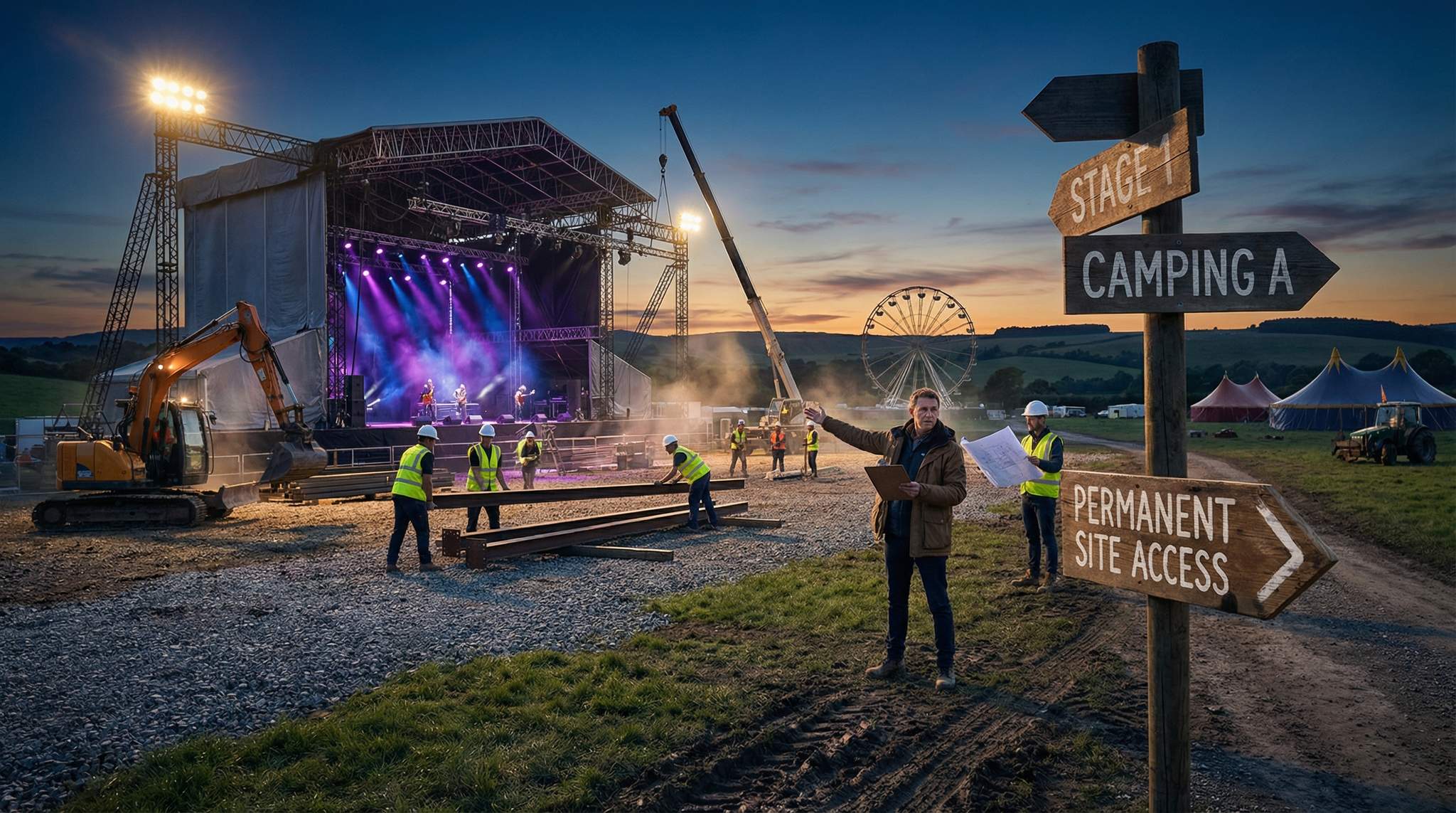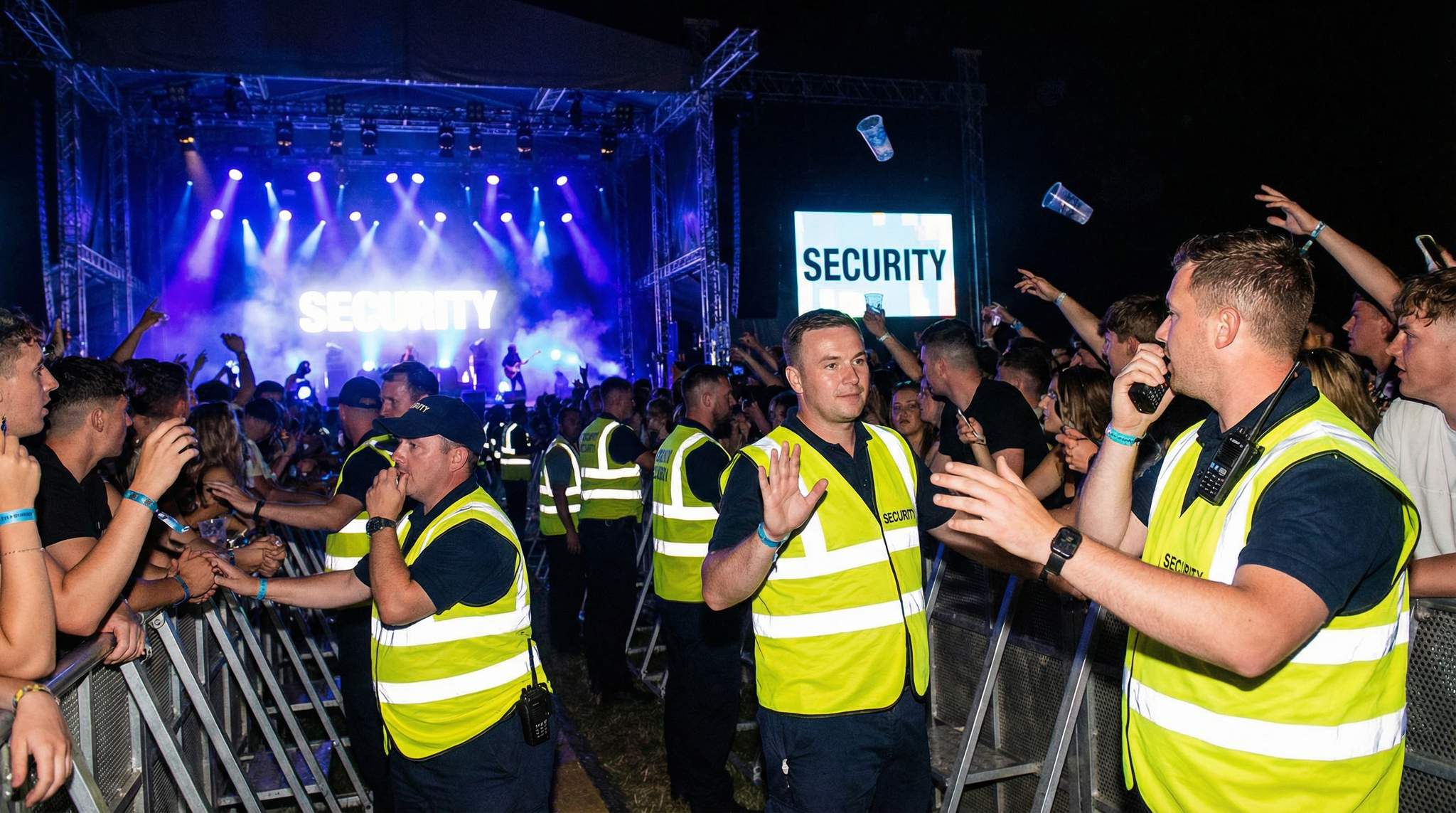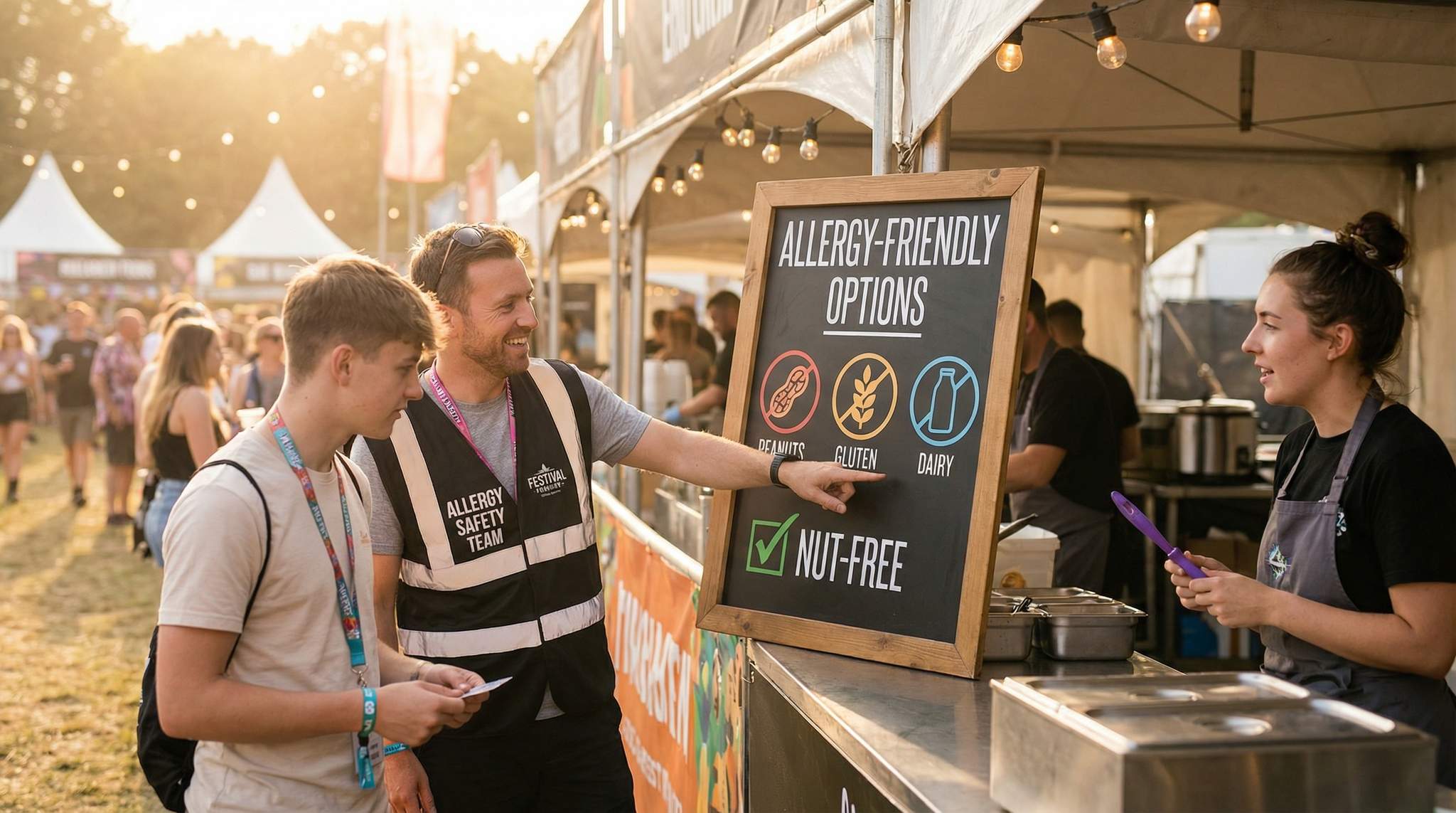Planning an international festival is a thrilling venture that also brings a unique set of challenges. Seasoned festival organizers recognize that even the most meticulously planned event can falter without local insight and support. Forging strong partnerships with local event planners, vendors, and suppliers is often the defining factor between a smooth overseas production and a logistical nightmare. Local expertise in production, marketing, and logistics bridges critical knowledge gaps and ensures effective execution on the ground.
Why Local Partnerships Are Essential Overseas
Every region has its own regulations, cultural nuances, and logistical hurdles. Partnering with local teams gives festival organizers an insider’s perspective on these factors. A local event planner or production team will be familiar with permit processes, local labor laws, and venue regulations that could otherwise surprise an outside producer. They also understand the community’s expectations and can advise on cultural etiquette – from appropriate festival scheduling (avoiding local holidays or sensitive dates) to performance content that resonates with local audiences. In short, local partnerships act as a safety net that prevents costly mistakes and builds a festival’s credibility with the host community.
Leveraging Local Event Planners and Teams
Collaborating with an experienced local event planner or co-producer is like having a knowledgeable guide in unfamiliar territory. These professionals often have pre-existing relationships with venues, authorities, and service providers:
– They can expedite obtaining necessary permits and licenses by knowing which government offices to approach and how to meet local requirements. This can drastically cut through red tape that foreign organizers might struggle with.
– Local planners are also adept at identifying potential site challenges (from terrain issues to electrical capacity) early in the planning process. Their history with local venues means they know what works and what doesn’t, helping avoid unpleasant surprises on festival day.
– Critically, a local production team understands the prevailing work culture and communication style. They can effectively coordinate with local crew, stagehands, and volunteers, bridging any language barriers or differences in work practices. This ensures that the festival’s build and breakdown, technical setup, and on-site operations run according to plan, respecting both international standards and local norms.
Case in point: When a major U.S. music festival expanded into South America, it teamed up with a renowned local promoter who knew the landscape intimately. The local partner’s connections with city officials and familiarity with the venue (and its quirks) allowed the festival to meet compliance standards smoothly. At the same time, the international organizers brought their high production values and brand experience. Together, they delivered a successful event that felt both authentically local and true to its global reputation – a result that neither party could have achieved alone.
Engaging Local Vendors and Suppliers
Logistics can make or break a festival, especially abroad. Working with local vendors and suppliers helps ensure that equipment and services are reliable and cost-effective:
– Sourcing staging, sound systems, lighting rigs, and other rentals from local companies often reduces transportation costs and avoids customs delays. Local suppliers are also more readily available for support if something goes wrong, providing quick replacements or repairs from nearby warehouses.
– Local food and beverage vendors can supply fresh, authentic fare that appeals to attendees and meets regional health regulations. They are familiar with local sourcing and can adapt menus to suit local tastes or address dietary expectations.
– Involving local suppliers also fosters goodwill. Communities tend to support festivals that boost the local economy by hiring regional catering, artisans, or tent services. This positive local impact can translate into better community relations and smoother cooperation from residents and officials.
However, organizers should vet all vendors carefully. Rely on recommendations from local partners and check references. A veteran festival producer knows that having backup suppliers is just as important – if one power generator supplier falls through, a locally connected team will likely know a quick substitute. Building a robust local supply chain with contingency options keeps the festival running even if the unexpected occurs (like a vendor truck getting stuck en route).
Planning a Festival?
Ticket Fairy's festival ticketing platform handles multi-day passes, RFID wristbands, and complex festival operations.
Tapping Into Local Marketing and Cultural Insight
Even a world-class festival needs local marketing savvy to draw a crowd in a new country. Partnering with local marketing teams or promoters ensures promotional efforts hit the right notes:
– Local marketers understand where the target audience gets their information. They can identify the most influential regional social media platforms, radio stations, community groups, or influencers to spread the word. Marketing campaigns that might work back home could require tweaking – local experts help adapt messaging and imagery to avoid cultural missteps and to resonate emotionally with the local demographic.
– When selling tickets overseas, partnering with a local ticketing outlet can provide familiar payment methods and customer service in the local language. This reduces friction for attendees. (For example, some countries have popular mobile payment apps or cash outlets that international organizers might not even know about without local advice.)
– Cultural insight goes beyond advertising. A local team can guide programming choices such as selecting well-loved local performers to open the show, scheduling around cultural meal times or prayer times, or incorporating regional traditions into the festival’s theme. These touches make the festival more inclusive and appealing to the community, transforming it from an outside import to an event that locals feel is for them.
By leaning on local expertise for marketing and cultural cues, festival producers build stronger connections with the audience. This not only boosts attendance but also enhances the festival’s reputation as a culturally respectful and savvy operation.
Adjusting for Festival Size and Type
The approach to building a local network can vary with the scale and type of festival, but it remains important at every level:
– Large international music festivals: Global brands (like traveling music festivals or multi-city events) typically partner with established local promoters in each country. This ensures massive productions get the local logistical support they need. For instance, large festivals expanding to new continents often strike joint ventures with local entertainment companies that have handled events of similar scale.
– Boutique or niche festivals: Smaller festivals aiming to travel abroad might not have the leverage of a big brand, but local partnerships are arguably even more crucial for them. A small indie film festival, for example, might collaborate with a local cinema club or arts nonprofit to navigate venue booking and tap into an existing community of film enthusiasts. The local partner’s endorsement can lend credibility and help the newcomer festival find its audience.
– Food, wine, or cultural festivals: These events thrive on authenticity. A food festival traveling overseas must involve local chefs, farmers, or breweries to adapt to regional palates and showcase local delicacies alongside international offerings. A cultural festival would do well to partner with local cultural institutions or community leaders who can advise on respectful representations and help engage local artists.
Regardless of size or theme, the common thread is that no festival succeeds in isolation when it’s away from home. Tailoring partnerships to fit the festival’s needs – whether it’s a giant stage production or an intimate cultural gathering – will lead to richer programming and smoother execution.
Success and Failure: Lessons Learned
Seasoned producers have a trove of stories underscoring the value of local networks. Success stories often sound like this: a festival entrusts key roles to local experts, and in return gets a well-coordinated event that wins over both traveling attendees and hometown fans. Problems that arose were swiftly handled because someone on the ground knew exactly who to call or how to adapt. Many multi-country festival franchises attribute their international longevity to empowering local teams to make decisions that fit the environment while maintaining overall quality.
On the other hand, cautionary tales highlight what happens without those partnerships. One notoriously failed attempt to stage a luxury festival on a remote island serves as a grim reminder. The organizers, lacking sufficient local support, grossly misjudged the island’s infrastructure and failed to secure adequate housing, food, and transport for attendees. The result was a highly publicized fiasco that could have been avoided – or at least mitigated – had seasoned local planners and vendors been involved from the start. Even on a less dramatic scale, festivals that ignore local advice often run into preventable snags like scheduling during monsoon season, choosing an inaccessible site, or violating noise ordinances. The lesson is clear: local knowledge isn’t a luxury but a necessity when operating internationally.
Need Festival Funding?
Get the capital you need to book headliners, secure venues, and scale your festival production.
Strategies for Building a Strong Local Network
The next generation of festival producers can take proactive steps to develop fruitful partnerships abroad:
1. Research and reach out early: Begin by identifying reputable local event professionals, production companies, or consultants in the host country. Convention and visitor bureaus (CVBs) or destination marketing organizations can often provide contacts or recommendations. Networking at international industry conferences and expos (like IMEX for events) is a great way to meet potential local partners.
2. Vet partners thoroughly: Look at a local team’s portfolio and speak to past clients if possible. Ensure they have experience with the scale and type of festival the team is planning. A reliable local partner should have a track record of professionalism and strong references.
3. Establish clear roles and trust: From the outset, define who is responsible for which aspects of planning – for example, the overseas team might handle booking talent and overall branding, while the local team handles permits, staffing, and local vendor coordination. Respect the local partner’s input in their areas of expertise. Trust is built by listening to their advice on what will or won’t work in their environment.
4. Bridge the cultural divide: Invest time in understanding how local partners communicate and operate. There may be differences in business etiquette, decision-making pace, or even holidays that affect timelines. Being sensitive to these will foster a positive working relationship. Also consider hiring interpreters or bilingual staff if language is a barrier, so nothing gets lost in translation during critical planning phases.
5. Plan site visits and face-to-face meetings: Whenever feasible, visit the host country during early planning. Walk through prospective venues with your local contacts, meet vendors in person, and hold joint meetings with local authorities. These on-ground sessions solidify relationships and provide insights one can’t get over email or phone.
6. Share knowledge both ways: While the local team educates the visiting team about local conditions and practices, also brief them on the festival’s core values, technical standards, and audience expectations. This two-way knowledge sharing aligns everyone’s efforts. The best partnerships make the festival a collaborative creation, not an imposed project.
7. Adapt and stay flexible: Despite careful planning, international productions often involve curveballs – maybe a shipping delay or a last-minute regulatory change. Work with your local network to adapt solutions. Their first-hand problem-solving in the local context, combined with the visiting team’s flexibility, can turn potential crises into mere hiccups.
8. Appreciate and acknowledge partners: Finally, recognize that local partners are pivotal to the festival’s success. Give them due credit and foster an ongoing relationship. A festival that returns year after year to a city will often keep the same trusted local crew, which only improves efficiency over time. Even for a one-off event, leaving a positive impression by treating local teams and vendors fairly ensures the festival has allies in that region should it ever return.
Final Thoughts
Building a local network is one of the most rewarding investments an international festival producer can make. It transforms a foreign venue into familiar ground. By combining a global vision with local expertise, festival organizers can create extraordinary experiences that respect and thrill their hosts and attendees alike. The wisdom of a retiring festival veteran boils down to this advice: no matter how big the dream, always ground it in local reality. In doing so, the next wave of festival producers will not only avoid pitfalls but also foster international goodwill, making each festival a true celebration of collaboration across borders.
Frequently Asked Questions
Why is partnering with local teams essential for international festivals?
Partnering with local teams provides crucial insider knowledge on regional regulations, cultural nuances, and logistical hurdles. Local experts navigate permit processes, labor laws, and venue regulations that often surprise foreign organizers. They also ensure cultural etiquette is respected, preventing costly mistakes and building credibility with the host community.
How do local event planners assist with overseas festival production?
Local event planners expedite obtaining necessary permits and licenses by knowing exactly which government offices to approach. They identify potential site challenges, such as terrain issues or electrical capacity, early in the planning process. Additionally, they bridge language barriers and coordinate effectively with local crew, stagehands, and volunteers.
What are the benefits of hiring local vendors for international events?
Hiring local vendors significantly reduces transportation costs and avoids customs delays for equipment like staging and sound systems. Local suppliers offer immediate support for repairs or replacements and provide authentic food options that meet regional health regulations. Additionally, supporting the local economy fosters community goodwill and smoother cooperation.
How can festival producers build a strong local network abroad?
Producers should start by researching reputable professionals through Convention and Visitor Bureaus and attending international industry conferences. It is essential to vet potential partners by checking references and portfolios. Once identified, organizers must establish clear roles, conduct site visits, and foster trust by respecting local input and cultural differences.
How does local expertise improve international festival marketing?
Local marketing teams identify the most influential regional social media platforms and influencers to reach the target audience effectively. They adapt messaging and imagery to avoid cultural missteps and resonate emotionally with locals. Furthermore, partnering with local ticketing outlets ensures attendees have access to familiar payment methods and customer service.
What risks do festivals face without local partnerships overseas?
Festivals lacking local support often face preventable issues like scheduling during local holidays, violating noise ordinances, or choosing inaccessible sites. Without local insight, organizers may misjudge infrastructure needs, leading to housing or transport shortages. Local partners provide a safety net and contingency options to mitigate these logistical risks.





